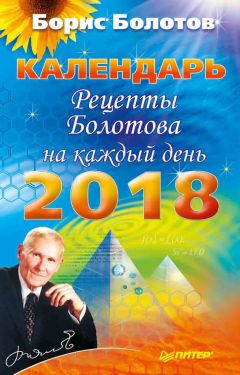Алла Болотова - Психология коммуникаций

Помощь проекту
Психология коммуникаций читать книгу онлайн
Miller P., Rose N. On therapeutic authority: Psychoanalytical expertise under advanced liberalism // History of the Human Sciences. 1994. Vol. 7. No. 3.
Moreno J. L. How Kurt Lewin's “Research Center for Group Dynamics” started // Sociometry. 1953. Vol. 16.
Morgan R. B., Casper W. J. Examining the factor structure of participant reactions to training: A multidimensional approach // Human Resource Development Quarterly. 2000. Vol. 11. No. 3.
Morton T. Intimacy and reciprociti at exchange // Journal of Social Psychology. 1978. Vol. 36.
Nabi G. R., Bagley D. Graduates’ perceptions of transferable personal skills // Education + Training. 1999. Vol. 41. No. 4.
Nakano K. Coping strategies and psychological symptoms in Japanese samples // Journal of Clinical Psychology. 1991. Vol. 47.
Nijstad B. A., Stroebe W. How the group af ects the mind: A cognitive model of idea generation in group // Personality and Social Psychology Review. 2006. Vol. 10. No. 3.
O'Neill O. Justice, gender and international boundaries // British Journal of Political Science. 1990. Vol. 20. No. 4.
Papa M. J., Natalle E. J. Gender, strategy selection in interpersonal confl ict // Western Journal of Communication. 1989. Vol. 53. No. 3.
Patton M. Q. Utilization Evaluation: The New Sentury Edition. Thousand Oaks, CA: Sage, 1997.
Powell K. S., Yalcin S. Managerial training ef ectiveness: A meta-analysis 1952–2002 // Personnel Review. 2010. Vol. 39. No. 2.
Reid F. Personal constructs and social competence // Constructs of Sociality and Individuality / P. Stringer, D. Bannister (eds). L.: Methuen, 1979.
Revans R. W. Action Learning – New Techniques for Management. L.: Blond & Briggs, 1980.
Reynolds M., Snell R. Contribution to Development of Management Competence. Shef eld: Manpower Services Commission, 1988.
Rice A. K. Individual, Group and Inter-Group Proucesses. A Tavistock Anthology Vol. l // The Socio-Psychological Perspective / E. Trist, H. Murray (eds). University of Pennsylvania Press, 1990.
Richter M. Personalfűhrung: Grundlagen und betriebliche Praxis. Stuttgart: Schäf er-Poeschel, 1994. S. 503–511.
Rogers C. R. Client Centered Approach to Therapy // Psychotherapist’s Casebook: Theory and Technique in Practice of Modern Time / I. L. Kutash, A. Wolf (eds). San Francisco: Jossey-Bass, 1986.
Rogers C. R. Client-centered therapy. Boston: Hougton Mif in. 1965.
Rogers C. R., Farson R. E. Active Listening. Chicago: University of Chicago Industrial Relations Center, 1957.
Rotter J. An Introduction to Social Learning Theory. N.Y.: Holt, Rinehart, & Winston, 1972.
Rough J. Society’s Breakthrough! Bloomington: Jim Rough, 2002.
Rubin L. Liking and loving // An Invitation to Social Psychologie. 1973. Vol. 62.
Salas E., Nichols D. R., Driskell J. E. Testing three team training strategies in intact teams a meta-analysis // Small Group Research. 2007. Vol. 38. No. 4.
Salas E. et al. The science of training and development in organizations: What matters in practice // Psychological Science in the Public Interest. 2012. Vol. 13. No. 2.
Sanford A. C., Hant G. T., Bracey H. J. Communication Behavior in Organizations. Columbus, Ohio: Charles E. Merrill Publishing Co, 1976.
Schlenker B. R. Personal responsibility: Applications of the triangle model // Research in Organizational Behavior Greenwich / L. L. Cummings, B. M. Staw (eds). Greenwich, CT: JAI Press, 1997.
Schlenker B. R. et al. The triangle model of responsibility // Psychological Review. 1994. Vol. 101.
Schon D. The Refl ective Practitioner: How Professionals Think in Action. L.: Maurice Temple Smith, 1983.
Schoonover S. C. Implem enting Comp etencies: A Bes t Practices Approach. L.: Scho on over Co, 1998.
Schutz A. The Phenomenology of the Social World. L.: Heinemann, 1972.
Schutz W., Vernon A. The ef ects of a T-group laboratory on interpersonal behavior // Journal of Applied Behavioral Science. 1966. No. 2.
Schwarz R. The Skilled Facilitator Approach // The IAF Handbook of Group Facilitation: Best Practices from the Leading Organization in Facilitation / S. Schuman (ed.). San Francisco: Jossey-Bass, 2005a.
Schwarz R. The Group Ef ectiveness Model // The Skilled Facilitator Fieldbook / R. Schwarz, A. Davidson, P. Carlson, S. Mckinney (eds). San Francisco: Jossey-Bass, 2005b.
Schwarz R. Understanding What Guides Your Behavior // The Skilled Facilitator Fieldbook / R. Schwarz, A. Davidson, P. Carlson, S. Mckinney (eds). San Francisco: Jossey-Bass, 2005c. P. 33–59.
Schwarz R. Exploring Your Contributions to Problems // The Skilled Facilitator Fieldbook / R. Schwarz, A. Davidson, P. Carlson, S. Mckinney (eds). San Francisco: Jossey-Bass, 2005d.
Schwarz R. Helping a Team Understand the System They Created // The Skilled Facilitator Fieldbook / R. Schwarz, A. Davidson, P. Carlson, S. Mckinney (eds). San Francisco: Jossey-Bass, 2005e.
Schwarz R. Ground Rules for Ef ective Groups // The Skilled Facilitator Fieldbook / R. Schwarz, A. Davidson, P. Carlson, S. Mckinney (eds). San Francisco: Jossey-Bass, 2005f.
Schwarz R. Responding to Silence and Interruptions and Enabling Members to Talk to Each Other // The Skilled Facilitator Fieldbook / R. Schwarz, A. Davidson, P. Carlson, S. Mckinney (eds). San Francisco: Jossey-Bass, 2005g.
Sheppered J. A. Productive loss in performance groups: A motivational analysis // Psychological Bulletin. 1993. Vol. 113. No. 1.
Shostack L. The Psychology of Cross-Cultural Diferences. Pacific Grove, CA: Brooks/ Cole, 1974.
Shure G. H., Rogers M. S., Larsen I. M., Tassone J. Group planning and task ef ectiveness // Sociometry. 1962. Vol. 25. No. 3.
Shute V. J. Focus on formative feedback // Review of Educational Research. 2008. Vol. 78. No. 1.
Sitzmann T. et al. A review and meta-analysis of the nomological network of trainee reactions // Journal of Applied Psychology. 2008. Vol. 93. No. 2.
Smith P. B. Controlled studies of the outcome of sensitivity training // Psychological Bulletin. 1975. Vol. 82. No. 4.
Snyder M. Public Appearances / Private Realities: The Psychology of Self-Monitoring. N.Y.: Freeman, 1987.
Solomon M. Standard issue // Psychology Today. 1987. Vol. 21. No. 12.
Spencer L. J. Winning Through Participation: Meeting the Challenge of Corporate Change With the Technology of Participation. Dubuque: Kendall; Hunt Publishing Company, 1989.
Spencer L. M., Spencer S. M. Competence at Work. N.Y.: John Wiley & Sons, 1993.
Spinks N., Wells B. Quality communications: A key to quality leadership // Training for Quality. 1995. Vol. 3. No. 2.
Stasser G., Dietz-Uhler B. Collective choice, judgment, and problem solving // Blackwell Handbook of Social Psychology: Group Processes / M. A. Hogg, R. S. Tindale (eds). Malden, MA: Blackwell, 2001.
Steiner I. D. Group Process and Productivity. N.Y.: Academic Press, 1972.
Sundstrom E., De Meuse K. E, Futrell D. Work teams: Applications and ef ectiveness // American Psychologist. 1990. Vol. 45. No. 2.
Tajfel H. Human Groups and Social Categories: Studies in Social Psychology. Cambridge: Cambridge University Press, 1981.
Tannenbaum R. T., Margulies F. Human Systems Development. San Francisco: Jossey-Bass, 1985.
Tannenbaum S. I. et al. Factors that Infl uence Training Ef ectiveness: A Conceptual Model and Longitudinal Analysis. Orlando, FL: Naval Training Systems Center, 1993.
Tannenbaum S. I., Yukl G. Training and development in work organizations // Annual Review of Psychology. 1991. Vol. 43.
Taylor F. W. The Principles of Scientific Management. N.Y.: Harper Bros., 1911.
Taylor S., Bell E., Cooke B. Alternative Narratives in the History of Group Dynamics: A Critical Hermeneutic Approach // Critical Management Studies Conference. 4–6th July. Cambridge. Management and Organizational History Track, 2005.
Tedeschi J. T., Riess M. Identities, the Phenomenal Self and Laboratory Research // Journal of Experimental Social Psychology. 1981. Vol. 7.
Thelen H. A. Dynamics of Groups at Work. Chicago: University of Chicago Press, 1954. Р. 374.
Thomas K. Confl ict and confl ict management // Handbook of Industrial and Organizational Psychology / M. D. Dunnette (ed.). Chicago: Rand-McNally, 1976.
Tickle-Degnen L. The nature of rapport and its nonverbal correlates // Psychological Inquiry. 1996. Vol. 27. No. 1.
Trout O., Rosenfeld H. The ef ect of postural lean and body congruence // Journal of Nonverbal Communication. 1980. Vol. 3.
Trower P., Bryant B. B., Argyle M. Social Skills and Mental Health. L.: The Falmer Press, 1978.
Trower P., Van der Molen H. T. Social Skills and Work // Social Psychology at Work / E. P. Collett, A. Furnham (eds). L.: Routledge, 1995.
Vroom V. H. Educating managers in decision making and leadership // Management Decision. 2003. Vol. 41. No. 10.
Walster E., Walster G. Equity: Theory and Research. Boston: Allin & Bacon, 1978.
Wardale D. A Proposed model for ef ective facilitation // Group Facilitation: A Research and Applications Journal. 2008. Vol. 9.
Weber S. M. The dangers of success: Dif usion and transition of large group interventions in german-speaking countries // The Journal of Applied Behavioral Science. 2005. Vol. 41. Iss. 1.
Weisbord M. R. Discovering Common Ground: How Future Search Conferences Bring People Together to Achieve Breakthrough Innovation, Empowerment, Shared Vision, and Collaborative Action. San Francisco: Berrett-Koehler Publishers, Inc., 1992.
Weldon E., Jehn K. A., Pradhan P. Processes that mediate the relationship between a group goal and improved group performance // Journal of Personality and Social Psychology. 1991. Vol. 61. No. 4.
Williams K. D., Harkins S., Laniné B. Identifi ability as a deterrent to social loafi ng: Tow cheering experiments // Journal of Personality and Social Psychology. 1981. Vol. 40. No. 2.
Wohlfahrt A. Psychosociale Teamberatung. Tubingen, 1990.
Wittenbaum G. M., Hollingshead A. B., Paulus P. B. et al. The functional perspective as a lens for understanding groups // Small Group Research. 2004. Vol. 35. No. 1.
Worley C. G., Feyerherm A. E. Refl ections on the future of organization development // Journal of Applied Behavioral Science. 2003. Vol. 39.
Yoo Ch., MacInnis Der. The brand attitude formation process of emotional and informational ads // Journal of Business Research. 2005. No. 58.
Zimbardo P. G., Boniwell I. Balancing one time perspective of optimal functioning // Positive Psychology in Practice / P. A. Linley, S. Joseph (eds). Hoboken: Wiley, 2004.
Примечания
1
Материал подготовлен совместно с канд. психол. наук А. К. Захаровой.
2
Материал подготовлен совместно с канд. психол. наук Н. В. Антоновой.
3
Классификация механизмов восприятия бренда выполнена под нашим руководством студенткой факультета психологии НИУ ВШЭ Васильевой В. С. в работе «Сравнительный анализ психологических механизмов восприятия бренда» (2012 г.).
4
Материал подготовлен совместно с канд. психол. наук А. В. Мартыновой.
5
Более подробно результаты данного эксперимента описаны и проинтерпретированы в книге одного из авторов данной монографии [Жуков, 2003, с. 118–123].
6
Материал подготовлен совместно с канд. психол. наук М. Р. Хачатуровой.
7
В более поздних публикациях понятия «коммуникативная компетентность» и «компетентность в общении» употребляются ею как синонимы [Петровская, 1999, с. 151].
8
В тексте данного раздела использован материал, опубликованный одним из авторов данной монографии в журнале «Психология в вузе» [Жуков, 2013], с разрешения редакции издания.
9
Предложена Чарльзом Алленом в 1917 г. в качестве основного компонента программы тренинга кораблестроителей.
10
Иногда в качестве общего наименования для этих видов тренинга используется словосочетание «тренинг групповых отношений» (Group Relations Training).
11
Начиная с этого места, изложение событий Первой и Второй летних лабораторий во многом опирается на воспоминания Д. Беннета, которому в 1947 г. было 12 лет и который тогда помогал своему отцу снабжать делегатов продуктами питания. Его воспоминания были опубликованы в местном периодическом издании «Bethel Journals».

























